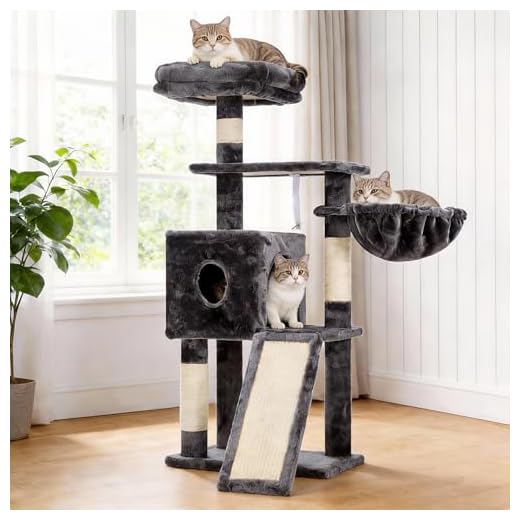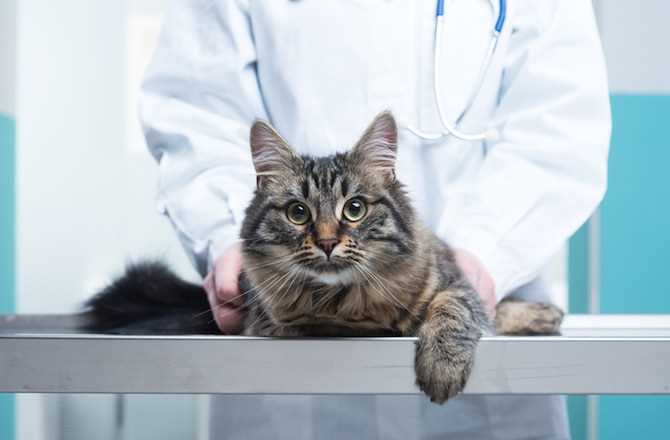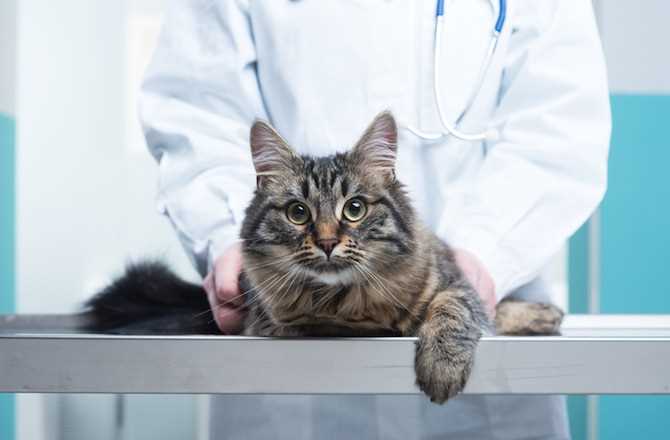



Regular veterinary check-ups are non-negotiable. Annual visits allow for early detection of health issues, ensuring timely intervention. Vaccinations and preventative treatments against parasites are crucial components of maintaining overall well-being.
Quality nutrition plays a pivotal role in health maintenance. A balanced diet tailored to age, weight, and activity level should be prioritized. High-quality proteins and essential fatty acids contribute to a robust immune system, while proper hydration supports kidney function.
Physical activity cannot be overlooked. Engaging in playtime not only helps maintain a healthy weight but also stimulates mental agility. Interactive toys and climbing structures can keep a feline entertained and active, reducing the risk of obesity-related complications.
Stress reduction is equally significant. Creating a calm environment with safe spaces allows for relaxation and comfort. Incorporating scratching posts and cozy hideaways fosters a sense of security, essential for emotional health.
Social interaction is key. Regular bonding time enhances emotional well-being and strengthens the human-animal relationship. Positive interactions contribute to lower stress levels and a happier disposition.
Providing a Balanced Diet for Longevity
Choosing a high-quality, species-appropriate diet is crucial. Prioritize protein sources like chicken, turkey, or fish. Avoid fillers such as corn and soy that do not offer nutritional benefits.
Key Nutritional Components
- Protein: Aim for at least 30-40% protein in meals, ensuring it’s the first ingredient listed.
- Healthy Fats: Look for omega-3 and omega-6 fatty acids, which support skin and coat health.
- Vitamins and Minerals: Incorporate taurine, calcium, and vitamins A and E for overall well-being.
Feeding Guidelines
- Provide multiple small meals throughout the day to mimic natural hunting behavior.
- Keep fresh water available at all times for proper hydration.
- Monitor portion sizes to maintain a healthy weight, as obesity can lead to various health issues.
Consider consulting with a veterinarian for personalized dietary recommendations, especially if any health conditions are present. Regularly assess food labels to ensure the diet remains optimal for health and wellness.
Creating a Safe and Stimulating Environment
Install secure screens on windows to prevent falls and escapes. Consider using window perches for sunbathing without the risk. Enclosed outdoor spaces, often called “catios,” provide fresh air while keeping dangers at bay.
Enrichment Activities
Incorporate interactive toys that promote mental engagement. Puzzle feeders challenge problem-solving skills while rewarding with treats. Rotate toys regularly to maintain interest and excitement.
Safe Spaces
Create cozy hideaways using boxes or beds in quiet corners. Elevated spots, such as shelves or cat trees, allow for observation of surroundings, offering both security and stimulation. Ensure all areas are free from hazardous items like cords or toxic plants.
Regular Veterinary Check-ups and Preventive Care
Annual vet visits are non-negotiable. These appointments allow early detection of potential health issues before they escalate. A thorough examination can uncover dental diseases, kidney problems, or even signs of obesity, which can significantly impact lifespan.
Vaccinations are another critical aspect. Staying up-to-date on core vaccines protects against severe diseases such as feline leukemia and rabies. Discuss with the veterinarian which vaccinations are appropriate based on lifestyle and age.
Parasite control is imperative. Regular treatments for fleas, ticks, and worms keep the body free from harmful invaders. Consulting with the vet on the best preventive products ensures the right choices are made.
Dental care shouldn’t be overlooked. Periodontal disease is common yet preventable. Regular dental cleanings can help maintain healthy gums and teeth, alongside daily brushing if possible.
| Check-up Frequency | Age Category | Recommended Tests |
|---|---|---|
| Annual | Young Adults (1-6 years) | General health check, vaccinations, dental exam |
| Every 6 months | Senior (7 years and older) | Blood work, urinalysis, dental cleaning |
Behavioral changes can indicate health concerns. Monitoring for alterations in appetite, activity levels, or litter box habits is crucial. Any noticeable changes should prompt a visit to the vet.
Regular vet visits and preventive measures form the cornerstone of a healthy lifestyle. Investing in veterinary care pays dividends in health and well-being.
Maintaining a Healthy Weight and Exercise Routine
Keeping a balanced weight is crucial. I recommend monitoring food intake and ensuring portion control. Use measuring cups for accuracy. Aim for a daily caloric intake that matches activity levels, usually between 20-30 calories per pound of body weight. Regularly check weight to avoid obesity, which can lead to serious health issues.
Engaging Activities

Daily playtime is vital. Interactive toys, like feather wands and laser pointers, stimulate natural hunting instincts. I enjoy chasing toys and climbing on cat trees. Aim for at least 15-30 minutes of active play each day. Consider using a best gps collar for cats to track activity levels and encourage more movement. Outdoor adventures, if safe, provide additional opportunities for exercise.
Feeding Practices
In addition to exercise, feeding strategies impact weight management. Opt for high-quality food with proper nutrients; brands like ACANA offer balanced options, as seen in the best acana dog food for labradors. Avoid free feeding; instead, establish a routine with set meal times. This promotes healthier eating habits.
Understanding and Managing Common Health Issues

Regular observation of behavior and physical condition is key. If I notice changes such as increased thirst, altered eating habits, or unusual lethargy, immediate attention is necessary. These signs can indicate underlying problems that require swift intervention.
Dental health is paramount. I recommend daily brushing or dental treats to prevent plaque buildup. Periodic professional cleanings can help avoid gum disease, which can lead to more severe health complications, including heart issues.
Fleas and ticks are more than just nuisances; they can transmit diseases. A reliable flea and tick prevention regimen is crucial. Discuss options with a veterinarian to find the most suitable treatment for my specific needs.
Regular monitoring for weight changes is vital. Obesity can lead to diabetes and joint problems. A balanced diet tailored to my life stage, along with consistent exercise, plays a significant role in maintaining an ideal weight.
Keeping an eye on urinary health is equally important. Signs like frequent trips to the litter box or straining can indicate urinary tract issues. Ensuring proper hydration and a high-quality diet can mitigate risks associated with these conditions.
Understanding breed-specific concerns is essential. For instance, as a Scottish Fold, I might be predisposed to certain genetic conditions. Staying informed about these risks allows for proactive measures to be taken.
Regular check-ups with a veterinarian are invaluable in catching potential health issues early. Vaccinations and screenings can prevent many serious conditions before they arise.
FAQ:
What are some dietary tips to help my cat live longer?
Providing a balanced diet is key to your cat’s longevity. Aim for high-quality cat food that lists meat as the first ingredient. Look for foods that contain essential nutrients, including taurine, omega fatty acids, vitamins, and minerals. Regularly check for any dietary restrictions or allergies your cat might have. Additionally, consider incorporating wet food into their diet, as it can help with hydration and kidney function. Always consult with your veterinarian for personalized dietary advice tailored to your cat’s specific needs.
How often should I take my cat to the vet to ensure they stay healthy?
Regular veterinary check-ups are important for your cat’s health. Generally, adult cats should see a veterinarian at least once a year for a wellness exam. Senior cats or those with health issues may need more frequent visits, possibly every six months. During these check-ups, the vet can perform necessary vaccinations, dental cleanings, and screenings for common diseases. This proactive approach helps identify and address health problems early, contributing to a longer, healthier life for your feline friend.
What kind of exercise does my cat need to stay healthy?
Cats require regular physical activity to maintain their physical and mental well-being. Encourage your cat to play daily with interactive toys, such as feather wands or laser pointers, which can also help strengthen your bond. Providing climbing structures or scratching posts can stimulate their natural instincts to climb and scratch. Aim for at least 15-30 minutes of active play each day. It’s important to observe your cat’s preferences and adjust the activities accordingly to keep them engaged and fit.
How can I create a safe and stimulating environment for my cat?
To promote a healthy and happy life, create a safe and engaging environment for your cat. Ensure that your home is free from hazards, such as toxic plants and small objects that could be swallowed. Provide a variety of toys and scratching posts to keep them entertained. If possible, create vertical spaces with shelves or cat trees where they can explore. Additionally, consider enriching their environment with window perches so they can watch birds and outside activity, satisfying their curiosity and natural instincts.
What are some signs that my cat may be aging or unwell?
As cats age, they may show signs of health issues or changes in behavior. Common indicators include decreased activity levels, changes in appetite, weight loss or gain, difficulty grooming, and changes in litter box habits. You might also notice increased vocalization or changes in sleep patterns. If your cat exhibits any of these signs, it is wise to consult with a veterinarian. Early detection of health issues can lead to more effective treatment and help ensure a longer, healthier life for your pet.










